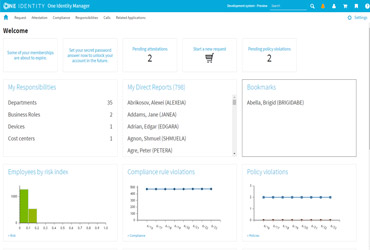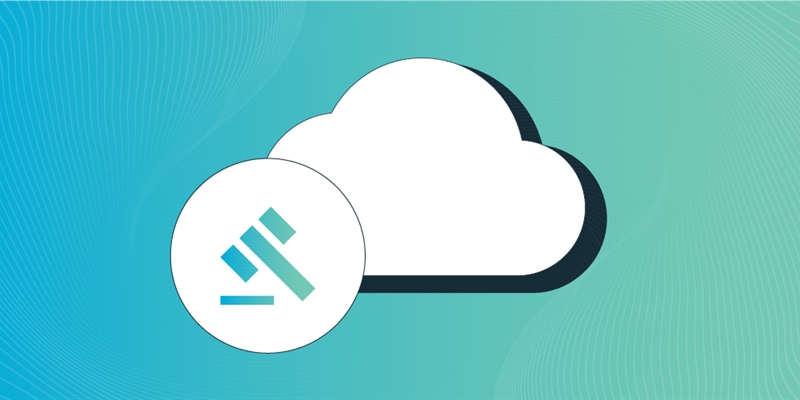In today's interconnected and rapidly evolving digital landscape, managing and securing identities within an organization has become paramount. The traditional approach to identity governance and administration (IGA) often falls short, leading to inefficiencies in workflow, security vulnerabilities and compliance challenges – increasing the likelihood of breaches, insider threats, and compliance-related risks and penalties. However, with the advent of cloud-based IGA solutions, businesses are now able to unlock a new level of power, scalability and flexibility, all while bolstering security and enhancing user experience. We will explore how organizations can leverage cloud-based IGA solutions to streamline their identity governance processes, enhance security and achieve compliance objectives.
Embracing Scalability and Flexibility:
One of the most significant advantages of cloud-based IGA solutions is the inherent scalability and flexibility offered. Unlike on-premises solutions that require infrastructure investments and burdensome maintenance, cloud-based IGA solutions offer the ability to easily scale up or down based on an organization’s current needs. Whether you're a small business or a large enterprise, the cloud allows you to deploy and manage identity governance resources with ease, adapting to the evolving requirements of your organization.
The versatility of cloud-based IGA solutions empowers organizations to embark on their unique paths toward success without having to worry about IT infrastructure-related concerns. As operational requirements surge or wane, the ability to seamlessly scale resources up or down becomes extremely valuable. The cloud's ability to offer these fluid transitions is a testament to its capacity for accommodating shifting business landscapes.
Streamlining Identity Governance Processes:
Cloud-based IGA solutions provide organizations with a unified and centralized solution to efficiently and comprehensively manage identities, access rights and entitlements across the entire enterprise. By consolidating identity data from various systems and applications, these solutions enable:
- Streamlined identity lifecycle management: Ensuring efficient handling of user identity processes from creation to retirement
- Automated provisioning and deprovisioning: Automatically granting and revoking access privileges as users' roles change, enhancing security and operational efficiency.
- Role-based access control: Regulating user permissions based on predefined roles, minimizing the risk of unauthorized access
- Self-service capabilities: Empowering users to independently manage their access requests and password resets, reducing administrative burden
A hallmark of cloud-based IGA solutions is the empowerment of users through self-service capabilities. The result is improved operational efficiency, reduced administrative burden and an overall enhancement to user experience.
Enhancing Security:
Effective identity governance is crucial for protecting an organization’s sensitive data and resources and defending against unauthorized access. Cloud-based IGA solutions offer advanced security features and controls, such as:
- Multi-factor authentication: Cloud-based IGA solutions wield the power to enforce MFA. This ensures that a single layer of credentials isn't the sole gateway to critical information and assets
- Granular access controls: These controls allow organizations to tailor access permissions with intricate precision. This makes certain that individuals have access only to the resources that are essential to their roles, minimizing the risk of attackers exploiting access loopholes
- Privileged Access Management: By developing a strict process for granting, monitoring and auditing privileged access, security is bolstered, and the risks associated with unauthorized access plumet
- Continuous monitoring: The integration of detection systems and real-time alerts ensures that any deviation from established norms is quickly identified and addressed, mitigating any threats before they have the chance to evolve into full-blown breaches
With the cloud's robust security infrastructure, organizations can rest assured that only authorized individuals have access to critical resources, mitigating the risk of data breaches and insider threats.
Achieving Compliance Objectives:
Upholding compliance with stringent industry regulations and data protection laws is a fundamental priority for organizations that span diverse sectors. Cloud-based IGA solutions can greatly assist in achieving these compliance objectives by providing comprehensive audit trails, identity reporting and access certifications. These instrumental capabilities enable organizations to demonstrate adherence to regulatory requirements, ensure proper segregation of duties and streamline compliance audits, thereby reducing compliance-related risks and costly penalties. Cloud-based IGA solutions act as vigilant guards that protect organizations from potential compliance-related pitfalls and pave the way for sustained operational integrity.
Intelligent Identity:
Cloud-based IGA solutions often incorporate analytics capabilities. Organizations can gain valuable insights into identity-related patterns, detect anomalies and proactively address security risks. Intelligent identity can help organizations identify potential compliance violations, suspicious user behavior and improve decision-making regarding access requests and entitlements, ultimately fostering a proactive and fortified security posture.
As organizations navigate the complexities of identity governance in an increasingly digital landscape, cloud-based IGA solutions offer a compelling and efficient way to unlock the power of identity governance. By embracing scalability, streamlining processes, enhancing security, achieving compliance objectives and leveraging analytics, businesses are able to harness the full potential of cloud-based IGA solutions to propel themselves forward with ease. Empowered by the cloud, organizations can establish a robust and agile identity governance program, ensuring that only the right individuals have the right access to the right resources while effectively mitigating security risks and maintaining regulatory compliance.





